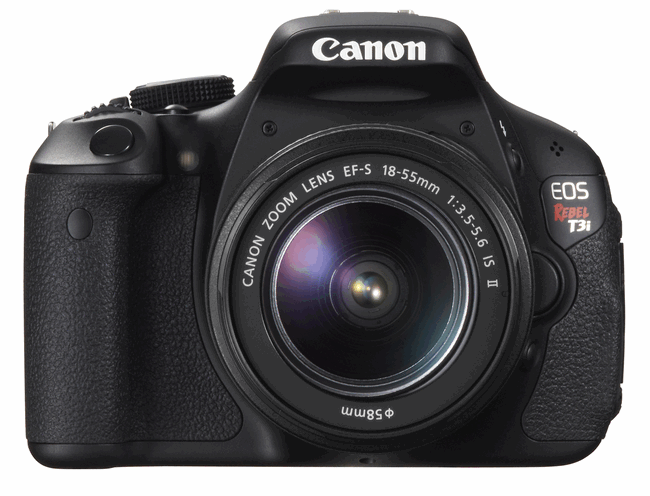
The new Canon T3i Rebel certainly looks like a bulldog of a an SLR – and in away it is. Because the T3i marks the emergence of SLRs as the preferrred form of video camera. Sure their will be high end video cameras but not low end video machines except perhaps in the pistol grip submersible category pioneered by the Sanyo Xacti Waterproof MPEG4 Camcorders
Ye Editor can certainly claim that he got convergence right back in 2006-2007 – unfortunately, the predicted triumph of Video camcorderss over SLRs turned out to be a reverse decision. At the time, ye Editor thought that the low light, low noise and image stabilization advantages that camcorders had over SLRs would mean that camcorders would triumph. All the camcorder vendors would have to do is snatch a video image [or three] and during recording and with a little HDR processing turnout a superior still image – low noise and image stabilized. Alas, the many camcorder tries all faltered. In contrast, SLR cameras added image stabilization, better low light performance and low noise tainting.
The T3I adds the icing on the cake – an entry level SLR with a video camcorder like swivel viewer, 1080p at 30frames per second, and the ability to manual focus while zooming. And SLRs add the capability of using interchangeable lenses – a feature reserved for high-end camcorders. Now there are audio pick-up and extremely low light pick up that, among other things, remain as unmatched camcorder features. But on the whole digital SLRs are now very competitive video recorders.
T3i as Accomplished Still Camera
The T3i sports some very impressive still camera features – 18MPixel sensor capable of shooting from ISO 50 to 12800 in 4 camera modes 16:9 4:3, 3:2 and 1:1. The auto-focus is only 9-point versus 30 or more in some of the high end digitals SLR like the Nikon D3 or the Canon Mark series. The camera supports 8 white balance settings and 8 picture taking modes while the connectivity is impressive with Wifi, USB 2.0, HDMI, and PAL/NTSC video out.
With its Digic4 procesor the T3i has so much surplus computing power that it is starting to take on some post processing tasks that are traditionally done on an external computer. For example there is Basic+ processing that does auto-adjustments in the various scene-based shooting modes. There are also “Creative Filters” that can be applied to images such as toy camera, fisheye and fake-miniature stylings. Ye Editor says yes to the built in Help System or feature guides – no to “Creative Filters” and mixed reaction to the “Basic+ processing.
But the real test of the camera will be the quality of the photos and video images produced. And given its T2i heritage, the T3i should produce very fine results. Our testing of the T2i versus the Nikon D3 or the Sony A900 was most impressive. Noise in shadows was reduced and highlight details preserved notably better than the higher priced cameras. So when the T3i becomes available in mid-March it will certainly be taken out for a test drive at the very least.
